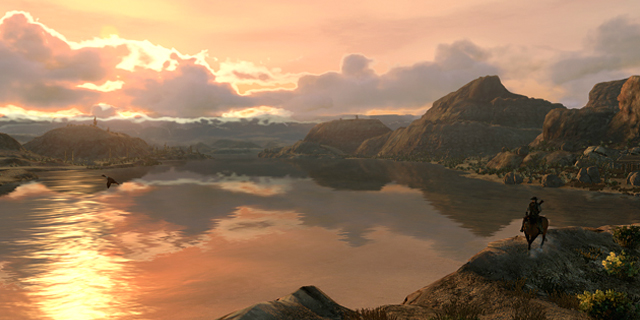
I recently wrote about how I felt cheated by Ni no Kuni’s ending. After a brilliant intro that forced you to emotionally invest in Oliver and his journey, the game’s creators failed to provide us with a satisfactory conclusion. I’m realizing now that I felt robbed of being “rewarded” for completing the game. That leads to another question: should we be rewarded for playing through a game, or should the game itself be the reward?
I’d like to focus more on how games reward the players. Just how do they manage to put that carrot on the stick just out of our reach and motivate us to keep going? For some, playing the game is enough. It’s not work, it’s an escape. Some games are quickly beaten and have infinite replay value, while others never end and have virtually infinite replay value. Think Solitaire, Tetris or even World of Warcraft.
What do developers do, specifically, to reward players in-game? What is the most effective type of reward? Perhaps it’s items to make your character more powerful (e.g. loot), a change in character appearance, new abilities, or new area to explore. Most games these days are loot-heavy and use an insanely high amount of different weapons to keep people interested. Beat this boss, see what sword you get. It might be crap, but hey, it might be good too! It’s fun beating up and killing things in games, so why not? Go for it. All I have to lose is my time, and my time is expendable since I’m playing a game.
Having loot as the game’s sole reward is a vicious cycle. Let’s say there’s a legendary set of armor in a treasure chest. It’s guarded by a monster more powerful than the end boss of the game, so your only option is to level up your characters to a point where they’re strong enough to take it on. At that moment you can beat the game easily. What do you need that legendary set of armor for?
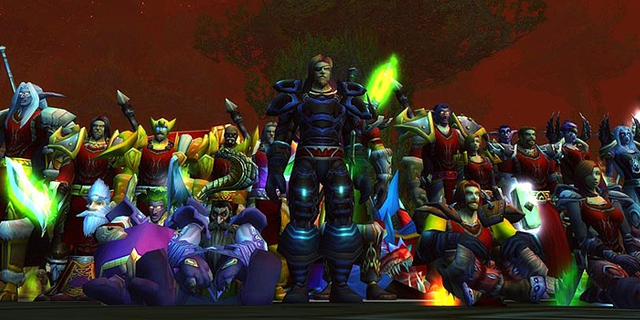
Trust me, I know why you want that legendary set of armor. It has a cool name like “Ultimate God Chest Plate of Infinite Sex”, “Sheara’s Tear of the Goddess”, or “Nova-Space-Time-Armor”. You’re thinking, “it has insane stats, and my healer will never die again.” Maybe it adds a new ability. Maybe you’ve already beaten the game, but you have a formidable party of warriors and you’re looking for something to do. You confront the monster, get the piece of armor (even though you don’t need it) and maybe secure the achievement. Almost every RPG has this kind of reward system in place. Part of the fun is acquiring loot and equipping it on your heroes. This won’t go away, nor should it.
Great games, or at least good games with great ideas, have a varied set of rewards for players to discover. It’s harder to do, and it takes more creativity, but it’s ultimately far more rewarding than just another pair of gloves that increase your attack speed five percent. I’ve already gushed about Lost Odyssey, but I have to come back to it as my first example of a rewards system done oh-so right. Lost Odyssey is a big-budget RPG for the Xbox 360, with a lot of big names attached to the production like former Final Fantasy producers. Lost Odyssey has a lot of the normal RPG tropes: multiple characters with different abilities, a huge world to explore, a long story. However, the best part of the game, by far, is the series of short stories called A Thousand Years of Dreams.
I won’t go into too much detail since I’ve already talked about them, but they’re short stories penned by an award-winning Japanese short story writer, Kiyoshi Shigematsu. Your main character will trigger a short story in different ways, such as looking at an object, appearing in a town or (most commonly) talking to somebody. This encourages a great amount of exploration. You simply don’t want to miss a single story. You’ll talk to everybody, go to every screen. It’s not a chore to do so, because the game is beautiful and the towns tend to be filled with lots of things going on. The stories are beautifully written, and have a distinct anti-war message in almost all of them. They add depth to your character, who is supposed to be hundreds of years old, and provide a different perspective other than the notion that your party is supposed to beat up everything it encounters. It’s not Spec Ops: The Line, but it’s something.
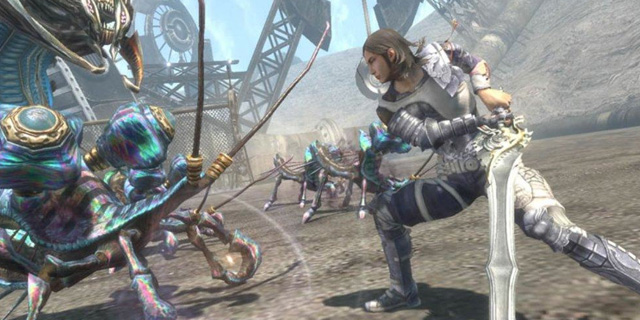
One of the greatest appeals of a huge, sprawling RPG or MMO is the world itself. The architecture of the buildings, the diverse geography and the scope of these fantastical locations are certainly enough to keep some people playing. Sometimes exploring is the only reward players need. There’s nothing like coming out of a winding cave and seeing a brand new land to discover. Most modern games look absolutely gorgeous, and many of the best stories you’ll hear are from those describing seeing a specific location for the first time. How they just stood there, moving the camera around and staring at the screen. It’s a different kind of reaction from getting a piece of loot, but just as powerful.
Guild Wars 2 rewarded players in a variety of ways that were refreshing to experience. I don’t play MMOs anymore, but I gave this one a shot since it wasn’t the type of time vampire that World of Warcraft was. I’m glad I did. Sure, you gain experience and levels by killing monsters and completing quests; all the standard RPG stuff is there. However, each section of map contains a variety of rewards that entice the player to explore every inch before moving on.
In addition to the typical quests, there are also scouts, which are characters you can talk to who will fill out sections of your map and tell you tasks in the area that need attending to. The scout may say that Captain Beard-guy wants a hand with the bandits in the area, or they may offer warnings of ghostly invasions. Skill points are up for grabs if you can kill a higher-level enemy, or find your way through a maze.
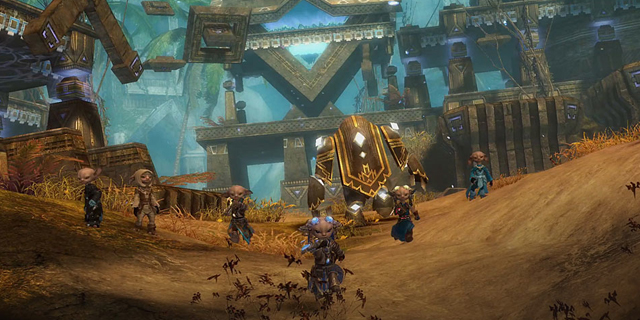
The kinds of rewards I like to see in a game come in the form of points of interest and vistas. A point of interest is simply something on the map that’s different or cool to look at. Once you discover a point of interest, there isn’t much interacting you can do with it, but it sure was fun getting to! Maybe you had to fight monsters along the way, or jump up a steep hill. It might be a sculpture of an eagle, or a graveyard, or the sight of a battle fought hundreds of years ago. It could be ancient ruins or a sword in a stone. It doesn’t really matter what it is, they’re there for a small amount of enjoyment and reward.
Vistas are even better. These are points on the map that are even harder to reach than points of interest. Once you reach a vista, the game will remove control for a short cinematic. The camera zooms out, showing you and your nearby allies standing among the enormous landscape. A brief music clip accompanies this as you get a different view of the land. It ends, and you’re back in control.
Okay, so what’s the point to all that? After all the questing, slaying, buying, selling and journeying you’ve been doing, it’s nice that the game just lets you take a brief moment to appreciate how beautiful the scenery is. The camera isn’t fixed during gameplay, but you can’t get the zoomed-out view like when you are viewing a vista. The scope of the world really is incredible. It lets me appreciate the developer’s work and look at the cool view. When I’m filling out my map, vistas are always my favorite part. It’s a small, different kind of reward. Thanks to great design, they’re not necessary either. It’s completely up to you if you just want to grind, do quests or just explore.
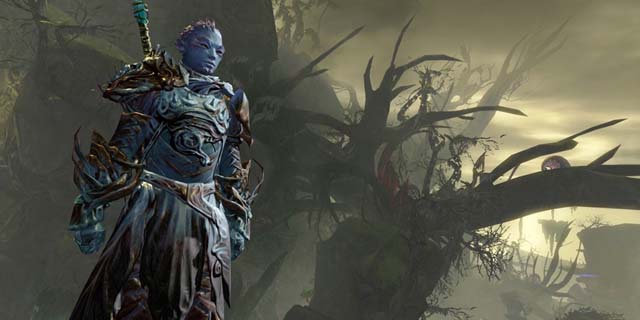
So, loot, abilities, short stories and graphics work as rewards. How about a song? A good piece of music is hard to write and for games, it can be an expensive, and composing can be an arduous process. Forget if the song is good, there are other questions that need to be answered in regards to a game’s music, such as when it should be played, should it loop, and if it fits with the rest of the game’s soundtrack. Does it have to?
The best reward through song I can think of is in Red Dead Redemption, one of my all-time favorites due to its pure, emotional impact. You play as John Marston, a former criminal who is looking to leave his past behind him and build a new life for himself and his family. The US government strikes a deal with him, and will grant him amnesty if he can bring in the remaining members of his old gang. Marston agrees, putting you in his shoes as you hunt down gang members, help the local townsfolk with their problems and gallop on your horse across one of the most original, beautiful landscapes ever created in gaming. You’re usually rewarded with cash or fame, but the best reward comes in the form of a song when you first enter Mexico.
After a particularly brutal fight as you float down a river, you find a horse and begin to trot up a small incline. Then you hear a guitar and “Far Away” begins to play. Have a listen:
It is a haunting, brilliant song that sounds like a folk song your dad would know from the ’60s or ’70s. It certainly doesn’t sound like it’s from a game. You continue to ride your horse along the newly discovered Mexico country, only to be met by an impossibly-beautiful sunset. You want this to last forever. This is better than any loot, any gun upgrade or fame increase. This is the only time in the game that the song plays, so it has impact and importance. You’ll always remember what your character was doing when the song played as you entered Mexico for the first time. What a fantastic reward!
I’m not saying loot isn’t a good reward. Everybody likes to have their character be more powerful, or rewarded for defeating a tough boss. I’m simply stating that a good mix of reward types will ensure a more satisfying experience. Rewards in life aren’t so easily obtained. There isn’t a specific list of tasks to perform in life and the subsequent rewards for doing them. We spend a long time working on ourselves, on our careers, our family, our friends, our passions, our hopes and lives. The scary thing is that there’s never a guarantee that things will work out. I’m not as cynical to say that never happens, but I’m realistic enough to know that for some, it doesn’t. Maybe that’s why I believe rewards in games are so important. On one hand, it’s just a game, and it doesn’t matter in the grand scheme of things. On the other hand, it sure is nice to know that if I work hard and perform a task, or complete a journey, I’ll be rewarded.



















